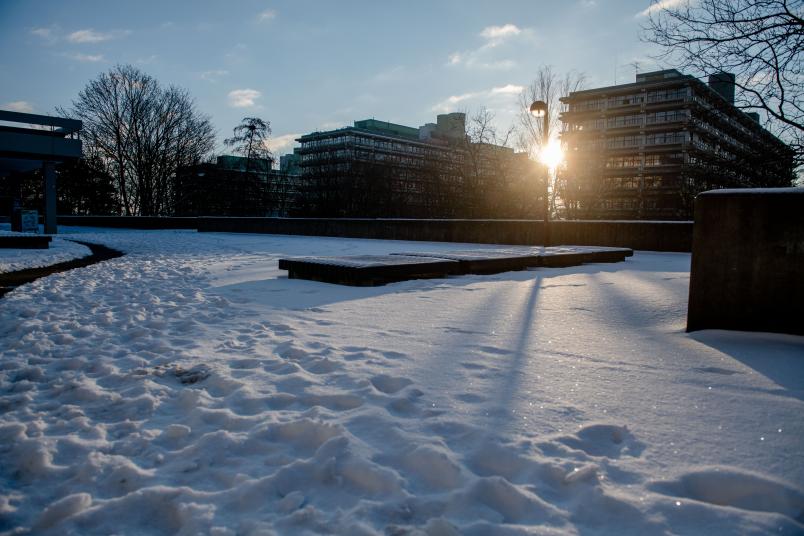
Saving 20 per cent energy
This is how RUB intends to get through the winter
The national savings target for energy is 20 per cent. Together with other higher education institutions in Germany, RUB plays its part in showing solidarity.
In all crisis scenarios that are currently being projected for the upcoming heating period, the so-called 20 per cent target is emerging as the consensus: it’s expected that everyone will have to plan on saving 80 per cent of the energy compared to the previous year. For RUB, this means that all members should aim to adjust their consumption and demands accordingly. According to calculations, this goal can be achieved through a combination of centralised measures and changes to people’s individual habits. “By making everyday life a little less comfortable, we can arrive at these savings overall, which will probably be sufficient to maintain our university’s entire research, teaching and administration activities,” says Rector Professor Martin Paul. “In addition, we are thus contributing in to the common good to ensure every sector of society is supplied with less, but still sufficient energy.”
Joint goal of the state government and the universities
What are the technical savings potentials at RUB?
The most important factor is heating: the primary way to save energy is to lower the room temperature. “The rule of thumb is: even one degree less results in a 6 per cent saving,” explains Dr. Robert Grosche, Head of Building and Facilities Management at RUB. “This means: if we lower the room temperature from 21 to 19 degrees, we would already save 12 per cent. We can achieve another 8 per cent through a large number of small-scale measures and through centralised measures.”
What can each and every one of us do?
Lowering the room temperature by two degrees is not possible at RUB simply by lowering the supply temperature at the central control room. It also requires that everyone sets their thermostats no higher than 3 during the day and turns the thermostat to 2 after closing time – or to 1 during longer absences, for example when working from home. “If everyone turns it up all the way, some people will stay nice and warm while others won’t benefit at all. Therefore, showing solidarity by turning the thermostat down is crucial for success,” says Grosche.
Additional savings can be achieved through measures that require each and every one to change their habits. These include:
- using cold water to wash your hands
- switching off lights at night or at the end of the working day
- airing rooms for a short time in intervals instead of constantly
- switching off devices rather than leaving them on standby when they're not in use
- avoiding using microwaves in office kitchens wherever possible
- not using private fan heaters, ventilators or air cons
RUB members are currently being advised about these and other savings potentials in a large-scale campaign.
Which centralised measures has RUB already implemented?
The facility management measures that have already been implemented or initiated include:
- reduction of flow temperatures in heating circuits
- conversion to self-regulating valves in all public areas
- raising the room temperatures in air-conditioning systems
- raising the flow temperature in the cooling circuit
- setting the running times – for example of ventilation systems, lighting – solely to office hours
- reduction of corridor lighting
- switching off outdoor lighting that is not necessary
- optimisation of system operation
- reduction of hot water tapping points